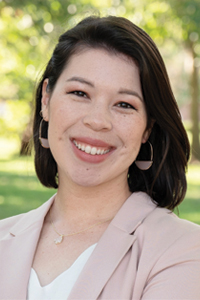Where do I belong? Navigating multiple social identities on campus
October 16, 2023

Annabelle Atkin
For many, college is a transformative phase that prompts questions of self-identity, fitting in and belonging. This process can be especially significant and challenging for Boilermakers with diverse social identities (e.g., socioeconomic status, race/ethnicity, gender, sexual orientation, ability, religion and how these aspects may intersect). They face the task of integrating their social identities with a campus environment that has traditionally centered on white middle-to-upper-class perspectives. To illustrate these challenges, let’s delve into two hypothetical examples.
Meet Alex, a Boilermaker from a working-class background. Working a part-time job to support his family, Alex finds it difficult to participate in social activities due to financial limitations and time constraints. Additionally, he experiences a sense of not fully belonging when comparing his parents’ professions to those of his peers, who have parents in higher-level positions, such as doctors or professors.
Now meet Isabella, a Mexican American Boilermaker majoring in electrical engineering.
Isabella strives to balance her Mexican heritage with her American upbringing. Her peers often ask why she feels so strongly about living at home with her family. It makes her sad that they don’t quite seem to understand when she explains family connectedness can sometimes be more important than her individual desires. Moreover, the underrepresentation of her culture in faculty, classmates and curricula, along with discriminatory experiences due to being a female Mexican American in a STEM major, makes Isabella question her sense of belonging.
Because of these reasons, Alex and Isabella may perceive that their social identities are clashing with the norms and attitudes of Purdue, having implications for their overall well-being.

Nathan Lieng
Research indicates that individuals who perceive a greater sense of harmony, rather than conflict, between their multiple social identities report positive mental health and academic adjustment. When individuals view their social identities as complementary and integrated, it can contribute to a sense of well-being and psychological resilience.
Although most U.S. universities, including Purdue, have promised to foster diversity, equity and inclusion (DEI), the progress is ongoing, and students from minoritized social groups may still feel excluded. Fortunately, there are existing resources and outlets on campus that can help Boilermakers affirm their identities and foster a greater sense of belonging. For example, although not exhaustive, we recommend engaging in the following:
Student Clubs or Organizations: Joining groups like the First-Generation Student Club, the Muslim Student Association, and the Women of Color in Healthcare Association allows you to connect with fellow Boilermakers who share your social identities and experiences.
Cultural and Resource Centers: Explore centers such as the Asian American and Asian Resource and Cultural Center, Horizons Student Support Services, and the Lesbian, Gay, Bisexual, Transgender, and Queer Center, which offer culturally sensitive programming, helping you further explore and affirm your social identities.
Culture/Diversity Courses: Enroll in courses like those listed here, where your social identity is represented in the curricula, providing valuable opportunities for learning and growth. Review your course catalog for more information.
To those who feel like their identities haven’t quite belonged on campus, we hope that you find a space at Purdue that affirms and includes your identities. It is our deepest wish that you embrace and view your social identities as a source of strength and resilience.
Annabelle Atkin: Annabelle Lin Atkin (she/her) is currently an assistant professor in the Human Development and Family Science Department at Purdue University. Her research interests are in the race-related development of multiracial and Asian American adolescents and young adults, inspired by her experiences growing up as a biracial Asian American. She is interested in understanding processes and experiences related to familial racial-ethnic socialization, racial-ethnic identity, critical racial consciousness and discrimination, and examining how these function as risk or protective factors for mental health outcomes.
Nathan Lieng: Nathan Lieng (he/him) is a Ph.D. student in the Human Development and Family Science program at Purdue University, working with Annabelle Atkin. He is a first-generation college student and son of refugee and immigrant parents. His research examines the racial/ethnic identity development of people from minoritized groups and how it relates to mental health, adjustment and relationships.


